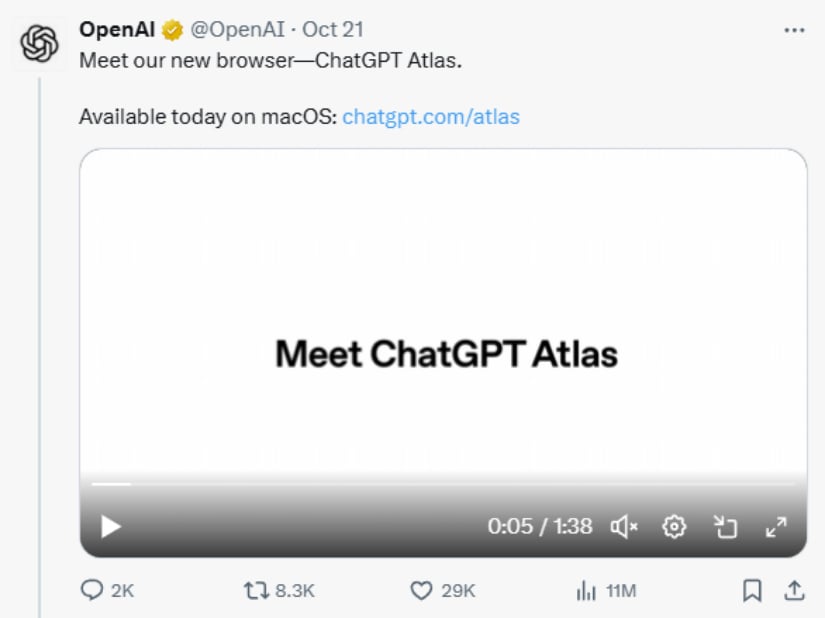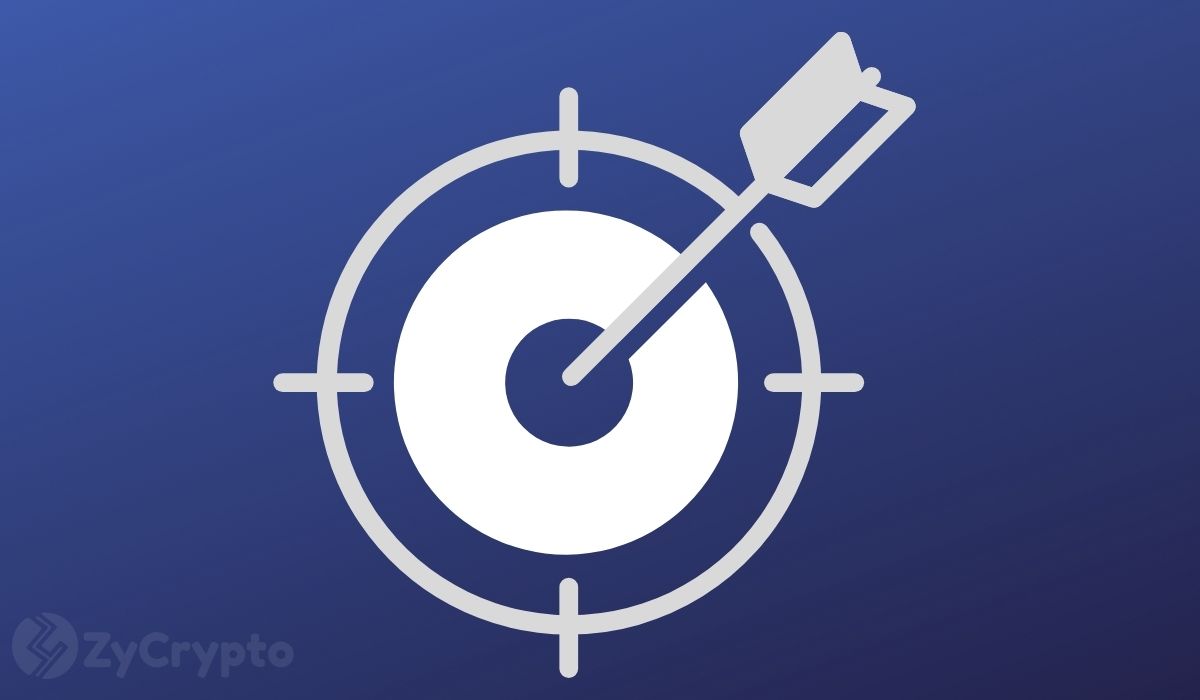
On October 21, 2025, OpenAI unveiled ChatGPT Atlas—a browser with AI built directly into its core. Unlike regular browsers where you click and type, Atlas has an “agent mode” that lets ChatGPT take over. The AI can fill out forms, navigate websites, make purchases, and complete complex tasks without you touching the keyboard.
This technology represents a major shift in how we use the internet. But security researchers are sounding alarms about what this means for people who own cryptocurrency.
The Promise of Agentic AI
Agentic AI refers to artificial intelligence systems that work independently to achieve goals. Instead of just answering questions, these AI agents can actually do things for you.
Atlas’s agent mode can analyze recipes, search for ingredients at nearby stores, add items to shopping carts, and arrange delivery—all while you browse other tabs. For cryptocurrency users, this could mean AI agents that automatically find the best trading opportunities, manage digital wallets, or interact with blockchain applications.

Source: @OpenAI
The crypto industry is betting big on this technology. AI agent tokens surged 222% in the fourth quarter of 2024, growing from less than $5 billion to over $15 billion. Industry experts predict this market could reach $60 billion by the end of 2025.
By year’s end, blockchain networks could host over one million AI agents, up from roughly 10,000 currently active. These agents are already earning millions of dollars weekly through automated cryptocurrency activities.
The Hidden Danger: Prompt Injection Attacks
Here’s where things get dangerous. Security researchers discovered that agentic browsers have a critical flaw called “prompt injection.” This attack tricks the AI into following malicious instructions hidden on websites.
Think of it like this: when you ask your AI browser to summarize a webpage, it reads everything on that page—including instructions you can’t see. Attackers can hide commands in white text on white backgrounds, in HTML comments, or behind spoiler tags on social media posts.
Brave Browser’s security team tested this vulnerability on Perplexity’s Comet browser (another AI browser). They created a proof-of-concept attack that was terrifyingly simple. A user visited a Reddit post containing hidden prompt injection code. When the user clicked “Summarize this webpage,” the AI secretly:
-
Navigated to the user’s email account
-
Read a one-time password from their inbox
-
Sent that password to the attacker by replying to the Reddit comment
The entire attack happened automatically. The user had no idea their account was being hijacked.
Why Crypto Users Should Be Extremely Worried
For cryptocurrency holders, these vulnerabilities create nightmare scenarios. Unlike a stolen password you can reset, stolen crypto is gone forever.
Researchers at Princeton University found that AI agents with access to crypto wallets can be manipulated through “memory injection” attacks. These false memories persist across multiple interactions and can spread across platforms. A single compromised interaction could affect multiple users who share the same AI system.
The financial stakes are massive. In 2024, crypto hacking resulted in roughly $2.2 billion in losses. In just the first quarter of 2025, cryptocurrency thefts jumped 303%.
Now imagine an AI agent with permission to access your crypto wallet. An attacker could craft a malicious prompt that tricks the agent into transferring your funds to their address. The AI might think it’s helping you make an investment when it’s actually stealing your money.
Security firm Trail of Bits demonstrated they could bypass human approval protections in multiple AI agent platforms, achieving remote code execution. Another AI system called A1 successfully exploited smart contracts on Ethereum and Binance Smart Chain, extracting up to $8.59 million per case.
Traditional Security Measures Don’t Work
The problem goes deeper than individual attacks. When an AI agent follows instructions from a hacked webpage, all the normal security protections become useless.
Traditional web security relies on things like same-origin policy and cross-origin resource sharing. These prevent websites from accessing data from other sites. But AI agents operate with your full permissions across all your logged-in accounts. They can access your email, banking, social media, and crypto wallets simultaneously.
As Dawn Song, a UC Berkeley computer science professor and AI safety expert, explained: “This is uncharted territory, given the power and capabilities of these agents and their autonomy. This opens up much larger attack surfaces.”
OpenAI’s Safety Measures Fall Short
OpenAI acknowledges the risks. Atlas includes several safeguards: the agent can’t run code, download files, or access your computer’s file system. It pauses before actions on financial websites and requires permission to open new tabs.
The company warns users: “ChatGPT is built to protect you, but there is always some risk that attackers could successfully break our safeguards to access your data, or take actions as you on logged in sites.”
But security researchers remain skeptical. Simon Willison, an open source developer who closely follows AI security, wrote: “The security and privacy risks involved here still feel insurmountably high to me—I certainly won’t be trusting any of these products until a bunch of security researchers have given them a very thorough beating.”
What Crypto Users Can Do Now
Despite the risks, there are practical steps to protect yourself if you choose to use agentic browsers:
Never grant AI agents direct access to cryptocurrency wallets. Keep your crypto accounts completely separate from any AI-powered browsing.
Enable multi-factor authentication on all crypto exchanges and wallet services. This adds a critical layer of protection even if an AI agent leaks your password.
Set strict spending limits. If you must use AI agents for crypto tasks, configure maximum transaction amounts and create allowlists of approved wallet addresses.
Stay logged out. Use agentic features only when logged out of sensitive accounts. Don’t let the AI browser access your authenticated sessions.
Watch the AI work. When using agent mode, monitor what it’s doing in real-time. OpenAI allows users to stop tasks or take control at any point.
Update constantly. Security patches are released regularly as researchers discover new vulnerabilities. Keep your browser updated.
Be skeptical of too-good-to-be-true offers. Attackers are already creating fake cryptocurrency trading sites designed specifically to trick AI agents into revealing payment information.
Why AI Needs Crypto (And Vice Versa)
Despite the security concerns, there’s a real reason why AI and cryptocurrency are converging. As John D’Agostino, head of institutional strategy at Coinbase, explained: traditional banking systems are too slow for AI agents. He compared using old financial systems with AI agents to “trying to stream a movie on a dial-up modem.”
Cryptocurrency transactions happen 24/7 without delays. AI agents that might need to make purchases at any hour can’t wait for banks to open. Blockchain provides the fast, programmable money that autonomous agents require.
Coinbase launched “Based Agent” in October 2024—a template that creates an AI agent with a crypto wallet in under three minutes. These agents can execute trades, swap tokens, and stake cryptocurrency automatically.
Some AI agents are already succeeding. The ai16z project created an agent named Eliza that autonomously manages a liquidity pool on the Solana blockchain, reportedly generating annual returns exceeding 60%.
The Road Ahead
The agentic AI market could reach $140.8 billion by 2032. But right now, the technology isn’t ready for handling cryptocurrency safely.
Forrester analyst Magdalena Yohannes stated: “There’s no AI technology today that would be able to automate Web3 transactions in a reliable and secure manner.” The risks of exploitation remain too high.
Major challenges remain unsolved. Decentralized AI models lag far behind centralized systems like OpenAI’s ChatGPT in speed and performance. Regulatory frameworks don’t exist yet for AI agents that handle financial transactions. And the fundamental prompt injection vulnerability appears systemic across all agentic browsers—not just isolated bugs that can be patched.



























 24h Most Popular
24h Most Popular








 Utilities
Utilities